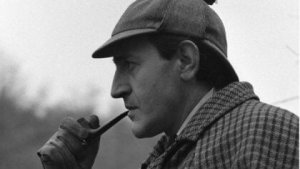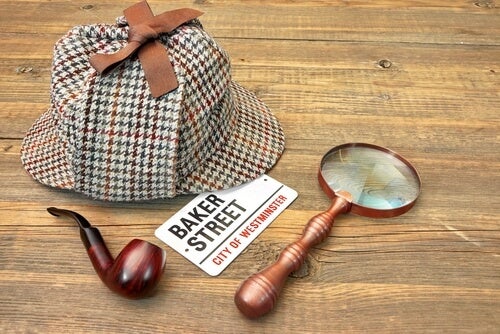The Power of Observation - Sherlock Holmes

Currently, there are at least two television series about Sherlock Holmes, his mysteries, and his power of observation. Elementary, produced in the United States, stars Jonny Lee Miller and Lucy Liu. In this series, there are frequent references to the cases that Conan Doyle put in the hands of Holmes. Detectives and the department of forensics also use his deductive reasoning techniques.
In addition to Elementary, there’s Sherlock, produced by the BBC. In this TV show, Benedict Cumberbatch stars in the protagonist role, along with Martin Freeman. In this series, people solve mysteries through ingenuity and technology.
In both series, Holmes makes use of his deductive reasoning skills. These skills are far superior to those of his coworkers and, of course, make Sherlock an indispensable figure for solving the most difficult cases.
Sherlock Holmes
Sherlock Holmes is a fictional character created by Arthur Conan Doyle. He first appeared over a century ago in 1887 in A Study in Scarlet. Doyle also published The Adventures of Sherlock Holmes in various magazines and newspapers throughout forty years. Conan Doyle, who ended up deeply loathing his character (almost as much as his audience adored him), passed away after writing four novels and 56 short stories of Sherlock Holmes.
Sherlock Holmes uses his deductive reasoning skills to solve cases after people or the police themselves ask him to. The popular detective loved complicated cases because he enjoyed the challenge. In fact, these cases are like drugs to him.
In addition, based on the stories of Sherlock Holmes, you could say that Conan Doyle is a pioneer of forensic science at a literary level. For instance, he used the Bertillon system to solve his cases.
Holmes is better known for his ability to see what others don’t see. He’s very skilled at estimating the probabilities associated with his assumptions, as well as establishing logical relationships. It’s like a kind of magic game that paradoxically becomes more attractive when Holmes himself explains it.

The power of observation
Observing people and situations is an incredibly useful skill. It can give you the advantage of recognizing small behavioral patterns. Thus, you can get ahead of situations: in casual conversations, job interviews, presentations, or any other environment.
Most people seldom pay attention to their surroundings. Similarly, the famous detective displays the value of details. He shows, for example, how the peculiarities of a person’s character, look, and even the clothes they wear can tell a lot about their interests or profession.
In this sense, technology works towards human detriment. Perhaps because there are more resources to get information about what happens in other parts of the world. But also because people no longer get to practice reading faces and body language. Human patience to endure boredom is non-existent and people often begin more than one task at a time (reading and watching TV). They do this just in case one of them isn’t sufficiently entertaining.
The difference between seeing and observing
In A Scandal in Bohemia, Holmes explains the difference between seeing and observing to Watson:
“When I hear you explain your reasoning,” Watson commented, “the question always seems so ridiculously simple to me, that I feel sure that I could easily have made the same deductions as you. However, to each new case that appears to me of its apparently strange powers, I feel confused until you explain the process that followed and nevertheless, I think I have as good eyes as you.”
“It’s possible,” he said, lighting a cigarette and dropping into an armchair. “You see, but don’t observe. The distinction is perfectly clear. For example, you have often seen the staircase leading from the lobby to this room.”
“Certainly.”
“How often?”
“Well, several hundred times”
“Then, you can tell me how many there are.”
“How many steps? I don’t know.”
“Do you understand now? You haven’t observed, despite having seen. That’s what I wanted to tell you. Now, I know that there are seventeen steps because I have seen and observed.”

Improve your power of observation to be just like Holmes
Just follow these tricks:
- Firstly, take note of your surroundings. Count the steps. Identify the number of windows.
- Take notes in a small notebook that you carry with you. You won’t need it after you practice for a while.
- Share your impressions. Everyone uses logic, what happens is that you seldom share your conclusions. Try it and you’ll get valuable feedback that can improve your reasoning.
- Stay tuned to patterns. The world is full of small behavior patterns. By observing a person for a while, you can learn what gestures or expressions they use with specific emotions.
Doyle, like all writers, was a bit of a “cheater”. He would write the clues and also tie them to Holmes’ interpretations. However, this doesn’t mean you can’t continue to enjoy the adventures of this wonderful detective, immortal through literature and the generations that have learned from his power of observation at 221B Baker Street.
This text is provided for informational purposes only and does not replace consultation with a professional. If in doubt, consult your specialist.








